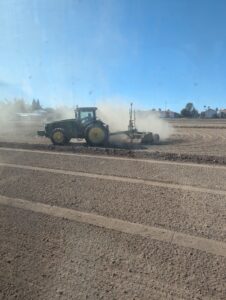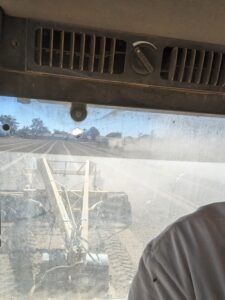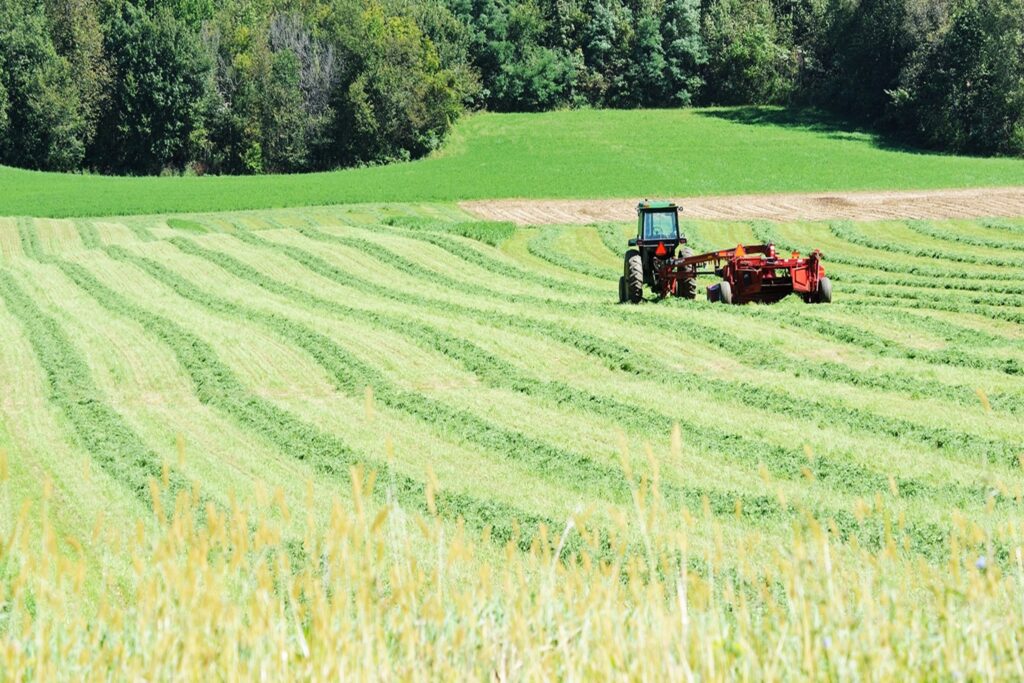Today, I want to share a piece of my life that's deeply rooted in our city's agricultural heritage. The photos below capture me at work, prepping our land to plant alfalfa. Sitting in my tractor, guiding the landplane, there's a sense of connection to the earth and a commitment to sustainable farming practices.
Alfalfa, often known as the 'queen of forages,' plays a crucial role in environmental sustainability. It's not just livestock feed; alfalfa is a nitrogen-fixing plant that helps improve soil health. By converting atmospheric nitrogen into a form that plants can use, alfalfa reduces the need for chemical fertilizers, promoting a more natural agricultural ecosystem.
In these photos, you'll also see our tractor performing laser leveling, a vital step in preparing the land for alfalfa planting. This process ensures efficient water usage and even growth, both critical in our arid climate. Through these methods, we cultivate a valuable crop and contribute to preserving our environment.
Farming alfalfa is more than an agricultural activity; it's about adopting eco-friendly practices that benefit our soil, air, and water. These small yet significant steps reflect my dedication to a greener, more sustainable Mesa.



